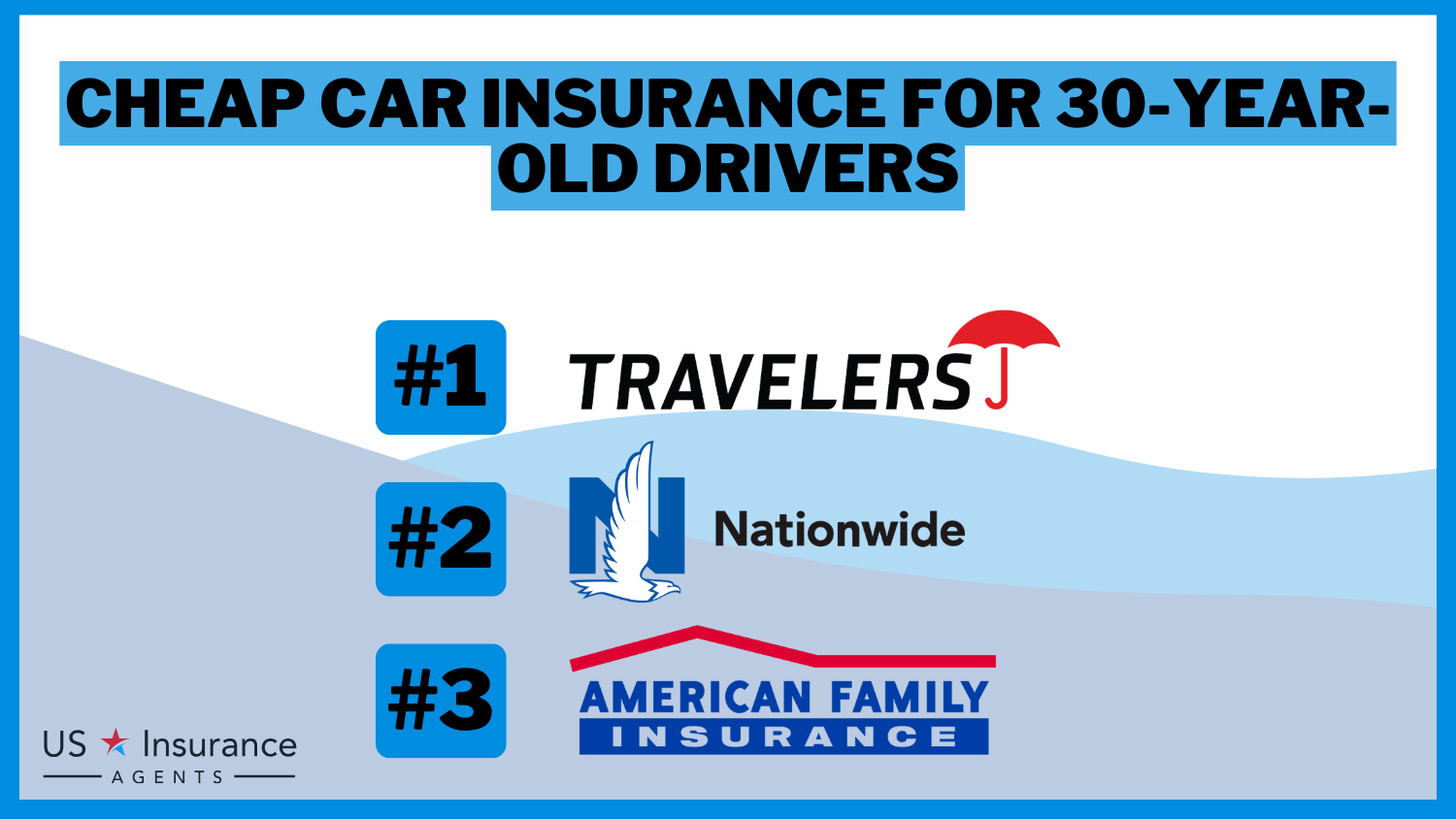Does my car insurance cover damage caused by a blown tire?
Understanding Your Car Insurance Coverage: Exploring If Damages from a Blown Tire Are Covered by Your Policy
Secured with SHA-256 Encryption





Table of Contents
Table of Contents


Licensed Insurance Agent
Jeff is a well-known speaker and expert in life insurance and financial planning. He has spoken at top insurance conferences around the U.S., including the InsuranceNewsNet Super Conference, the 8% Nation Insurance Wealth Conference, and the Digital Life Insurance Agent Mastermind. He has been featured and quoted in Nerdwallet, Bloomberg, Forbes, U.S. News & Money, USA Today, and other leading...
Jeff Root


Licensed Insurance Agent
Chris is the founder of Abrams Insurance Solutions and Marcan Insurance, which provide personal financial analysis and planning services for families and small businesses across the U.S. His companies represent nearly 100 of the top-rated insurance companies. Chris has been a licensed insurance agent since 2009 and has active insurance licenses in all 50 U.S. states and D.C. Chris works tireles...
Chris Abrams
Updated January 2025
Car insurance is a crucial investment for any vehicle owner, providing financial protection in the event of various mishaps. However, it’s essential to understand what exactly your car insurance covers to ensure you have adequate coverage for all potential situations. One often overlooked question is whether car insurance covers damage caused by a blown tire. Let’s explore car insurance coverage and how it pertains to tire-related damages.
Understanding Car Insurance Coverage
What is Car Insurance?
Car insurance is a contractual agreement between you and an insurance company, providing financial protection against potential losses resulting from accidents or other specific incidents. It usually includes coverage for bodily injury liability, property damage liability, medical payments, collision coverage, comprehensive coverage, and uninsured/underinsured motorist coverage.
Types of Car Insurance Coverage
Before delving into tire-related damages, let’s first familiarize ourselves with the different types of car insurance coverage available:
- Bodily Injury Liability: Covers injuries caused to others if you are at fault in an accident.
- Property Damage Liability: Covers damage caused to someone else’s property if you are at fault in an accident.
- Medical Payments: Covers medical expenses for you and your passengers.
- Collision Coverage: Covers damage to your vehicle resulting from a collision, regardless of fault.
- Comprehensive Coverage: Covers damage to your vehicle resulting from incidents other than collisions, such as theft, vandalism, or natural disasters.
- Uninsured/Underinsured Motorist Coverage: Covers you if you are involved in an accident with an uninsured or underinsured driver.
Now that we have a basic understanding of the different types of car insurance coverage, let’s explore each one in more detail.
Bodily Injury Liability
Bodily injury liability coverage is an essential component of car insurance. It provides financial protection if you are at fault in an accident and cause injuries to others. This coverage helps pay for medical expenses, rehabilitation costs, and even legal fees if the injured party decides to sue.
It’s important to note that bodily injury liability coverage has two limits: per person and per accident. The per person limit is the maximum amount the insurance company will pay for each injured individual, while the per accident limit is the maximum amount the insurance company will pay for all injuries resulting from a single accident.
When selecting your coverage limits, it’s crucial to consider the potential costs associated with severe injuries. Medical expenses can quickly escalate, especially if long-term care or rehabilitation is necessary. By choosing higher coverage limits, you can protect yourself from potential financial burdens resulting from a serious accident.
Property Damage Liability
Property damage liability coverage is another essential aspect of car insurance. It provides financial protection if you cause damage to someone else’s property while driving. This coverage helps pay for repairs or replacement of the damaged property, such as another person’s vehicle, a fence, or a building.
Similar to bodily injury liability coverage, property damage liability coverage also has a limit. This limit represents the maximum amount the insurance company will pay for property damage resulting from a single accident.
When selecting your coverage limit for property damage liability, it’s important to consider the potential costs of repairing or replacing expensive items. For example, damaging a luxury car or causing significant damage to a building can result in substantial expenses. Choosing a higher coverage limit can provide you with peace of mind and protect you from potential financial hardships.
Medical Payments
Medical payments coverage, also known as MedPay, is an optional coverage that helps pay for medical expenses resulting from a car accident. It covers you and your passengers, regardless of who is at fault in the accident.
MedPay can help cover a wide range of medical expenses, including hospital bills, doctor visits, surgery costs, and even funeral expenses in the unfortunate event of a fatality. This coverage can be particularly beneficial if you don’t have health insurance or if your health insurance has high deductibles or limited coverage for car accident injuries.
When considering whether to add medical payments coverage to your car insurance policy, it’s crucial to assess your current health insurance coverage and financial situation. Having additional coverage can provide you with added peace of mind and help alleviate the financial burden of medical expenses resulting from a car accident.
Collision Coverage
Collision coverage is an important type of car insurance that covers damage to your vehicle resulting from a collision, regardless of fault. Whether you collide with another vehicle, a stationary object, or even a pothole, this coverage can help cover the cost of repairs or provide compensation if your vehicle is deemed a total loss.
Collision coverage is particularly beneficial if you have a newer or more valuable vehicle. Repairing or replacing these vehicles can be costly, and collision coverage can help alleviate the financial burden in the event of an accident.
It’s important to note that collision coverage typically comes with a deductible. The deductible is the amount you must pay out of pocket before your insurance coverage kicks in. When selecting your collision coverage, consider your financial situation and choose a deductible that you can comfortably afford.
Comprehensive Coverage
Comprehensive coverage is another valuable component of car insurance that covers damage to your vehicle resulting from incidents other than collisions. This includes theft, vandalism, fire, natural disasters, falling objects, and even animal collisions.
Comprehensive coverage can help protect your vehicle from a wide range of risks that are beyond your control. For example, if your car is stolen or damaged by a hailstorm, comprehensive coverage can help cover the cost of repairs or provide compensation if your vehicle is deemed a total loss.
Similar to collision coverage, comprehensive coverage usually comes with a deductible. When choosing your comprehensive coverage, consider the potential risks in your area and select a deductible that aligns with your financial situation.
Uninsured/Underinsured Motorist Coverage
Uninsured/underinsured motorist coverage is a vital type of car insurance that protects you if you are involved in an accident with a driver who either doesn’t have insurance or doesn’t have sufficient insurance to cover the damages.
In some states, uninsured/underinsured motorist coverage is required by law, while in others, it is optional. Even if it’s not mandatory in your state, it’s highly recommended to add this coverage to your car insurance policy.
In the unfortunate event of an accident with an uninsured or underinsured driver, this coverage can help pay for medical expenses, property damage, and other losses you may suffer. Without this coverage, you may be left responsible for covering these expenses out of pocket.
When selecting your uninsured/underinsured motorist coverage, consider the potential risks on the road and the number of uninsured or underinsured drivers in your area. Adding this coverage can provide you with crucial protection and peace of mind.
Now that we have explored each type of car insurance coverage in more detail, you can make informed decisions when selecting the coverage that best suits your needs. Remember, car insurance is not only a legal requirement in most places but also a financial safety net that can protect you from unexpected expenses and provide you with peace of mind on the road.
Free Auto Insurance Comparison
Compare Quotes From Top Companies and Save
Secured with SHA-256 Encryption
The Role of Tires in Vehicle Safety
Tires are an essential component of any vehicle, playing a crucial role in ensuring the safety of both the driver and passengers. They are the only point of contact between the vehicle and the road, making them a critical factor in maintaining control and stability. Understanding the importance of regular tire maintenance is key to ensuring optimal performance and reducing the risk of accidents.
Importance of Regular Tire Maintenance
Proper tire maintenance is not only essential for the longevity of your tires but also for your overall safety on the road. Regularly checking tire pressure, rotating tires, and inspecting for wear and tear are simple yet effective ways to prevent accidents and extend the life of your tires.
One crucial aspect of tire maintenance is checking tire pressure regularly. Underinflated tires can lead to decreased fuel efficiency, reduced traction, and increased stopping distance. These factors can significantly compromise your ability to control the vehicle, especially in emergency situations. On the other hand, overinflated tires can result in a harsh and uncomfortable ride, reduced traction, and uneven wear.
In addition to maintaining proper tire pressure, rotating tires at recommended intervals is also essential. Tire rotation helps ensure even wear on all tires, maximizing their lifespan and optimizing performance. By rotating the tires, you can distribute the wear more evenly, allowing each tire to experience different positions on the vehicle, which can help reduce uneven wear patterns.
Regularly inspecting tires for wear and tear is another vital aspect of maintenance. Worn-out or damaged tires can significantly increase the risk of a blowout, compromising the safety of everyone in the vehicle. By checking for signs of tread wear, bulges, cracks, or any other visible damage, you can identify potential issues early and take appropriate action.
Neglecting tire maintenance can have severe consequences, such as an increased risk of a blown tire. A blown tire can lead to loss of control, sudden loss of tire pressure, and potential accidents. Therefore, taking the time to perform regular maintenance tasks is not only a matter of convenience but also a matter of safety.
Common Causes of Tire Blowouts
Tire blowouts can occur due to various reasons, and understanding these causes can help you take preventive measures to minimize the risk. Some common causes of tire blowouts include:
- Underinflation: Insufficient tire pressure can weaken the tire structure and lead to blowouts. When the tire is underinflated, the sidewalls flex excessively, generating heat and stress that can eventually cause a blowout.
- Overloading: Carrying more weight than recommended can put excessive strain on the tires. Overloading can lead to increased heat buildup, tire failure, and ultimately, a blowout.
- Poor Tire Condition: Worn-out or damaged tires are prone to blowouts. As the tire tread wears down, it becomes more susceptible to punctures, cuts, and other forms of damage that can result in a blowout.
- Road Hazards: Sharp objects, potholes, or debris on the road can cause tire blowouts. When a tire encounters a sharp object or hits a pothole, it can result in an immediate blowout or damage that leads to a blowout later on.
By being aware of these common causes, you can take proactive steps to minimize the risk of a tire blowout. Regularly inspecting your tires, maintaining proper tire pressure, and avoiding overloading your vehicle can go a long way in ensuring your safety on the road.
Does Car Insurance Cover Tire Blowouts?
Comprehensive Coverage and Tire Damage
Comprehensive coverage typically covers damage to your vehicle resulting from incidents other than collisions. This includes incidents such as theft, vandalism, and natural disasters. However, it’s important to review your car insurance policy or consult your insurance provider to determine whether tire blowouts fall under comprehensive coverage.
Collision Coverage and Tire Damage
Collision coverage typically covers damage to your vehicle resulting from a collision, regardless of fault. This coverage may come into play if you are involved in an accident caused by a blown tire. Again, it’s essential to review your specific policy or consult your insurance provider for clarification.
Scenarios of Insurance Coverage for Tire-Related Damages
Tire Blowout Causing Damage to Your Own Car
If you experience a tire blowout that results in damage to your vehicle, whether comprehensive or collision coverage applies will depend on your insurance policy. If tire blowouts are explicitly mentioned in your policy, then there is a good chance that coverage will be provided. However, coverage terms may differ between insurance companies or specific policy agreements.
Tire Blowout Causing Damage to Another Vehicle
If a blown tire causes damage to another person’s vehicle, your car insurance’s liability coverage should kick in. Property damage liability coverage is designed to cover such situations. It’s essential to have sufficient liability coverage to protect yourself financially in case of any accidents caused by a blown tire.
Free Auto Insurance Comparison
Compare Quotes From Top Companies and Save
Secured with SHA-256 Encryption
How to File a Claim for Tire-Related Damage
Steps to File an Insurance Claim
If you experience tire-related damage and need to file an insurance claim, follow these general steps:
- Contact your insurance company as soon as possible to notify them of the incident.
- Provide all necessary details to your insurance company, including information about the accident, your policy number, and any supporting evidence or documentation.
- Cooperate fully with your insurance company during the claims process, providing any additional information or documentation they may request.
- Keep track of all communication and documentation related to your claim.
- Follow up with your insurance company to check the status of your claim and address any further questions or concerns.
What to Expect After Filing a Claim
Once you file a claim, your insurance company will typically assign an adjuster to investigate the incident and determine the extent of coverage applicable. The adjuster may need to inspect your vehicle and review any provided evidence. After assessing the situation, the insurance company will inform you about the coverage amount and the next steps in the process.
Remember, it’s essential to review your specific car insurance policy and consult your insurance provider to understand the specific coverage details for tire-related damages. Use this information as a starting point for your research.
Before concluding, it’s worth mentioning that regular tire maintenance and safe driving practices can go a long way in preventing tire blowouts and related damages. Lastly, don’t forget to compare insurance quotes with our free tool and review insurance rates from different companies online to potentially save money and find the best rates.
Frequently Asked Questions
Does car insurance cover damage caused by a blown tire?
Yes, car insurance can cover damage caused by a blown tire depending on the type of coverage you have. Comprehensive insurance typically covers tire damage resulting from non-collision events, such as a blowout.
What is comprehensive car insurance?
Comprehensive car insurance is a type of coverage that helps pay for damage to your vehicle that is not caused by a collision. It often covers events like theft, vandalism, fire, natural disasters, and certain types of tire damage.
Does liability insurance cover damage caused by a blown tire?
No, liability insurance generally does not cover damage caused by a blown tire. Liability insurance typically only covers damage to other vehicles or property when you are at fault in an accident.
What should I do if my car gets damaged due to a blown tire?
If your car gets damaged due to a blown tire, the first step is to ensure your safety and the safety of others. Then, contact your insurance provider to report the incident and initiate the claims process. They will guide you through the necessary steps to get your vehicle repaired.
Will my car insurance rates increase if I make a claim for tire damage?
It depends on your insurance provider and policy. Making a claim for tire damage may or may not lead to an increase in your car insurance rates. It is recommended to check with your insurance company to understand their specific guidelines regarding claims and rate adjustments.
What factors determine if my car insurance covers blown tire damage?
Several factors can determine if your car insurance covers blown tire damage. These may include the type of coverage you have (comprehensive or basic), your policy terms and conditions, and the cause of the blown tire (e.g., normal wear and tear, road hazards, etc.). Reviewing your insurance policy or contacting your provider will provide the most accurate information.
Get a FREE Quote in Minutes
Insurance rates change constantly — we help you stay ahead by making it easy to compare top options and save.


